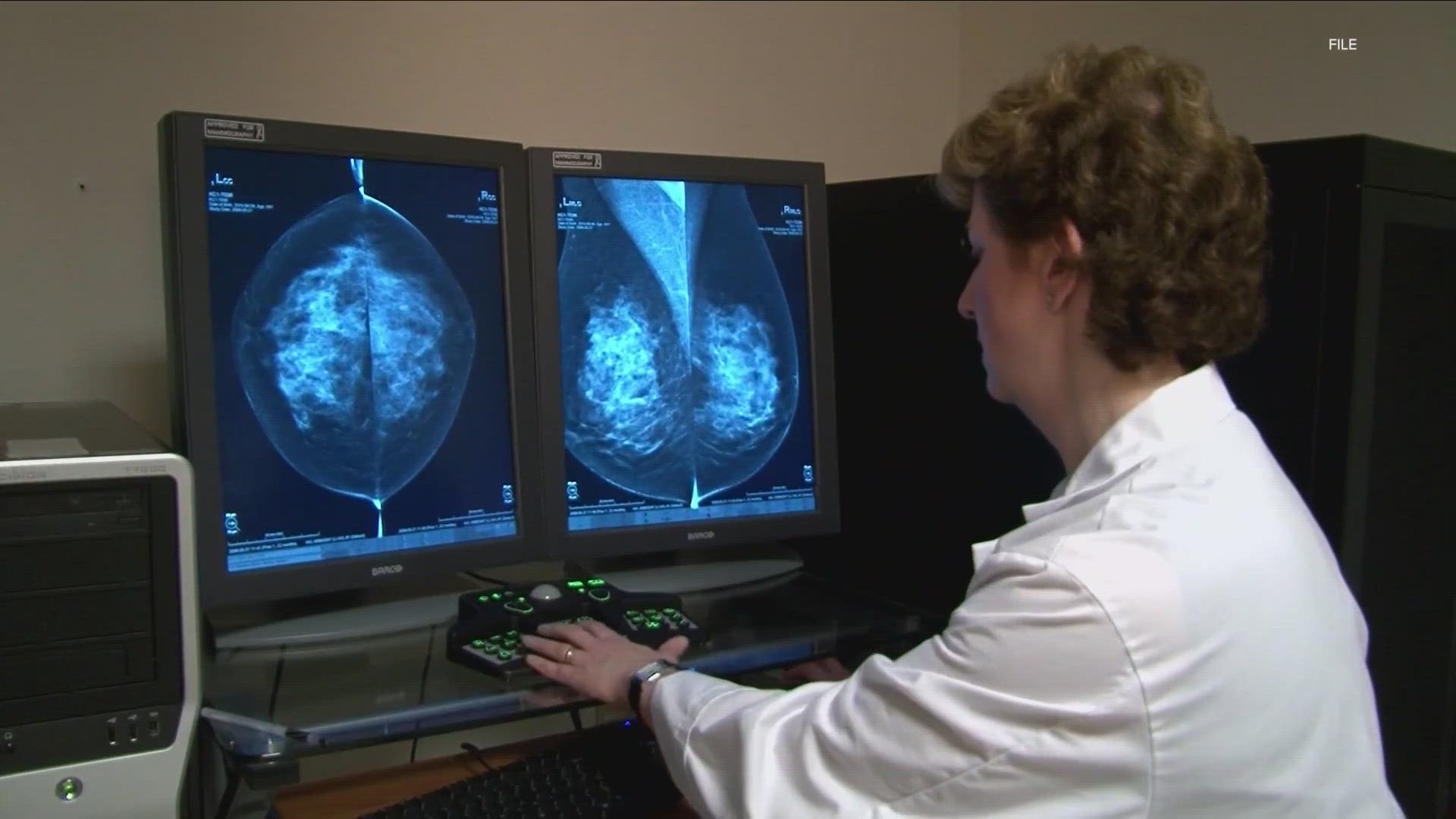OLYMPIA, Wash. — According to the Centers for Disease Control and Prevention (CDC), the average probability of a woman in the United States developing breast cancer sometime in her life is about 13 percent.
This means there is a 1 in 8 chance you or someone you know will develop breast cancer.
There's a new bill, Senate Bill 5396, moving through the Washington State legislature that aims to save more lives through early detection.
"It will make the step after mammograms, which we call diagnostic imaging, free to patients. So mammograms are cost-free to patients under the Affordable Care Act, because they're considered preventative. It's a great service. So every time we have a mammogram, we do not have to pay any out of pocket for that. But the next step is diagnostic imaging, and that is when there has been an abnormality detected in the mammogram," said Kirsten Smith with Susan G. Komen.
The additional, needed diagnostic imaging can be costly to patients.
"For some patients, they don't know if they have cancer yet, and they may not have cancer, and they don't go through with the test because of the cost," Smith said.
Smith said this kind of legislation has already been successful in other states.
"It has passed in nine states actually to date. And this year 2023, we are running it in 23 states, including Washington," Smith said.
Dr. Ulissey with Rayus Radiology in Auburn supports this bill.
"If that woman doesn't come and get her additional evaluation, that's going to continue to cook, it's going to be there. And it's not going to be something that we can address and make it a speed bump in her life, it could potentially turn into a major disaster," Dr. Ulissey said.
Dr. Ulissey believes this bill can save lives by helping the patient with the cost of supplemental screenings after a mammogram.
"They'll make it right for patients, so make it easier for patients to get care. And ultimately, it will save lives."
The bill's next hearing will occur March 22 in House Committee on Appropriations.

